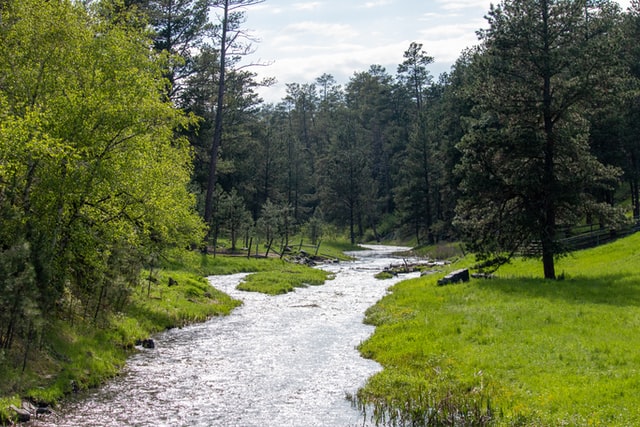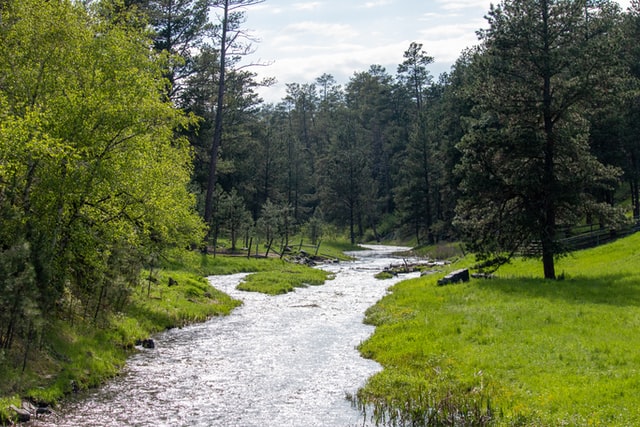
So the question is, ‘Is it Illegal to Metal Detect in State Parks?’ Well yes and no. And this article will explain why that is the case. When you’re planning the next location for your metal-detecting adventure, choosing a national or state park is extremely tempting but you do need to check some things out.
After all, the possibilities are endless when it comes to locations such as this, in part because of how many people visit these parks each and every year and how many relics and treasures you are almost guaranteed to find there. But before you head out to one of these facilities and start detecting, you should first ask yourself, is it legal or illegal to metal detect in state parks in my state?
Is it Illegal to Metal Detect in State Parks? What to Do First
The first thing you should know is that just because state parks are public areas doesn’t mean you can just head out and start detecting once you find where the park is located. There are several state parks in all 50 states, and each of them has a different set of rules when it comes to both metal-detecting and digging on the property.
Once you find out the laws for your particular state, those laws will apply to all state parks in the state, so if you’re planning on using your metal detector at more than one park in your state, you’ll very likely only need to obtain permission or get a permit once.

Before you go out to a state park and start metal-detecting, you should visit the park manager’s office first and ask what, if anything, you need to do before getting started. Also keep in mind that the city or town where the park is located may also have some requirements that you have to meet before you head out, so it’s best if you check with them while you’re at it.
Is it Illegal to Metal Detect in State Parks? State-by-State Metal Detecting Regulations
All states will have some type of department in charge of parks, but if you enter the property in person and go straight to the park ranger’s office, he or she will tell you what to do next.

Each state has its own rules for using a metal detector in their parks, the following is a list of all 50 states and their requirements as of the time of this writing. That being said, you should still check with the authorities before assuming you can metal-detect in a certain state park, since the rules are subject to change at any point.
Requirements State by State for Metal Detecting
● Alabama: It is illegal to metal-detect in state parks, but some parks allow it if you get permission first.
● Alaska: You don’t need a permit, and you are able to metal-detect in most areas, with the exception of national monuments and recreation areas.
● Arizona: You need a permit for any public lands, including BLM (Bureau of Land Management) properties. No archaeological collection is allowed.
● Arkansas: A permit is needed.
● California: Most of the parks allow metal detecting as long as you do not disturb any vegetation.
● Colorado: You can metal-detect but you cannot remove the artifacts. Some state parks require a permit, and some do not allow you to dig.
● Connecticut: You can detect on lands of the Department of Environmental Science, but you have to fill in the holes you dig and you have to report all artifacts to the authorities.
● Delaware: You must metal-detect during regular park hours only, and you cannot take any artifacts you find that are more than 100 years old.
● Florida: All artifacts more than 50 years old become official property of the state.
● Georgia: No metal-detecting is allowed in state parks or any federal land.
● Hawaii: You can use metal detectors on beaches but not in state parks.
● Idaho: You will need a permit to metal-detect in any state park.
● Illinois: Each state park is different, but most require a permit. Make sure you also check with the city where the park is located for additional requirements.
● Indiana: Metal detectors are not allowed in state parks.
● Iowa: You can use your metal detector in state parks, but only at certain times and only from May 22 to September 27 each year.
● Kansas: You can use your metal detector but you cannot dig any holes in the ground.
● Kentucky: You cannot use your metal detector in any state park.
● Louisiana: You cannot use your metal detector in any state park.
● Maine: You can use your metal detector but you have to get permission first from the park manager.
● Maryland: You can use your metal detector in state parks during regular park hours, but you need a permit if you’re planning to dig.
● Massachusetts: You may be able to use your metal detector depending on the park, but you’ll need permission from the park manager first. Also, check with the city or town for any additional requirements they may have.
● Michigan: In some parks, you can use your metal detector but cannot cause any damages to the property. In other state parks, you cannot use your metal detector at all.
● Minnesota: No metal detectors are allowed in any state park.
● Mississippi: You can use your metal detector in state parks as long as you have permission from the park manager. The only exception is that you cannot metal-detect around any landmark, and you’ll have to check with the park manager to determine what is considered a landmark in that particular park.
● Missouri: Thirteen of the state parks require a permit, which is free and good for one calendar year. Check with the park manager before you head out.
● Montana: You cannot metal-detect at any of their state parks.
● Nebraska: In most state parks, you cannot even carry a metal detector onto the property.
● Nevada: You can use your metal detector in state parks as long as you have permission in writing from the park manager.
● New Hampshire: Although there are restrictions, you can use your metal detector in state parks.
● New Jersey: You can use your metal detector in state parks, but you’ll need a permit.
● New Mexico: You have to have a permit to metal-detect in state parks.
● New York: You can metal-detect with a permit only. The boroughs of New York City vary, so you’ll need to check with each of them for additional requirements. Metal detectors are off-limits in NYC’s Central Park.
● North Carolina: You can use your metal detector as long as you get permission first, but generally they only let you look for lost items.
● North Dakota: As a general rule, metal detectors are not allowed in state parks, although some park managers may grant you permission to use them.
● Ohio: You can metal-detect only with permission.
● Oklahoma: You can metal-detect only with permission.
● Oregon: You can only metal-detect when you obtain a permit.
● Pennsylvania: Only allowed at a few parks, with permission beforehand.
● Rhode Island: You can only metal-detect at certain times and in certain locations.
● South Carolina: You can metal-detect in some state parks in certain areas.
● South Dakota: Many parks allow you to look for lost items only and with permission beforehand.
● Tennessee: Metal detectors on public lands are restricted, so you’ll need to check with the park manager.
● Texas: Allowed in most state parks with a permit.
● Utah: You can metal-detect with a permit, but you cannot keep the artifacts you find.
● Vermont: You can metal-detect without a permit, but you still need permission from the manager.
● Virginia: You can metal-detect but only with permission.
● Washington: Each park is different, so check with the park manager.
● West Virginia: No metal-detecting is allowed in state parks.
● Wisconsin: Metal detectors are off-limits unless you’re looking for a lost item.
● Wyoming: Metal detectors are generally not allowed by hobbyists.



